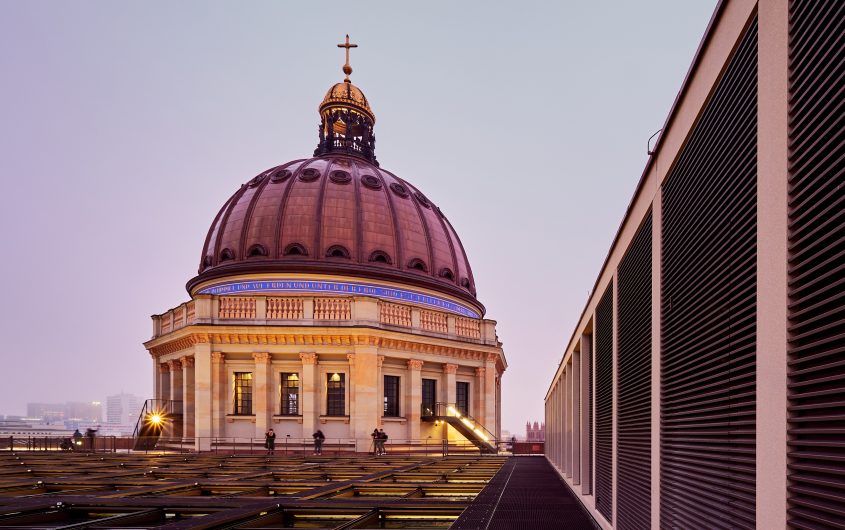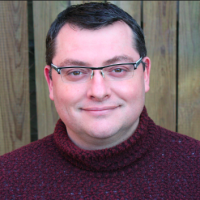
Tenzin Peljor via Flickr
Another Unmasterable Past?

Eric Langenbacher
Senior Fellow; Director, Society, Culture & Politics Program
Dr. Eric Langenbacher is a Senior Fellow and Director of the Society, Culture & Politics Program at AICGS.
Dr. Langenbacher studied in Canada before completing his PhD in Georgetown University’s Government Department in 2002. His research interests include collective memory, political culture, and electoral politics in Germany and Europe. Recent publications include the edited volumes Twilight of the Merkel Era: Power and Politics in Germany after the 2017 Bundestag Election (2019), The Merkel Republic: The 2013 Bundestag Election and its Consequences (2015), Dynamics of Memory and Identity in Contemporary Europe (co-edited with Ruth Wittlinger and Bill Niven, 2013), Power and the Past: Collective Memory and International Relations (co-edited with Yossi Shain, 2010), and From the Bonn to the Berlin Republic: Germany at the Twentieth Anniversary of Unification (co-edited with Jeffrey J. Anderson, 2010). With David Conradt, he is also the author of The German Polity, 10th and 11th edition (2013, 2017).
Dr. Langenbacher remains affiliated with Georgetown University as Teaching Professor and Director of the Honors Program in the Department of Government. He has also taught at George Washington University, Washington College, The University of Navarre, and the Universidad Nacional de General San Martin in Buenos Aires, Argentina, and has given talks across the world. He was selected Faculty Member of the Year by the School of Foreign Service in 2009 and was awarded a Fulbright grant in 1999-2000 and the Hopper Memorial Fellowship at Georgetown in 2000-2001. Since 2005, he has also been Managing Editor of German Politics and Society, which is housed in Georgetown’s BMW Center for German and European Studies. Dr. Langenbacher has also planned and run dozens of short programs for groups from abroad, as well as for the U.S. Departments of State and Defense on a variety of topics pertaining to American and comparative politics, business, culture, and public policy.
__
The Humboldt Forum Part II
As I wrote over a year ago, the new museum and cultural complex in central Berlin, the Humboldt Forum, has gradually opened since late 2020 in the midst of the pandemic. In that article, I described the numerous debates and controversies over the building itself, namely the partially reconstructed baroque facades of the former Hohenzollern city palace. Unsurprisingly, these controversies have continued.
Recent ire has been directed specifically at the dome on the structure’s west façade. Many have taken issue with the cross placed at the apex and the inclusion of the original inscription in gold letters embedded in a bright blue band around the base: “There is no salvation in any other, nor is there any other name given to men, but in the name of Jesus, for the glory of God the Father. That in the name of Jesus all knees should bow down who are in heaven and on earth and under the earth.”[1] In addition to criticism from non-Christian voices, it was also pointed out that the original inscription was penned by Prussian King Frederick William IV and was intended to assert the power of monarchy over democracy in the wake of the violent suppression of the Revolution of 1848.
In response, the current leader of the Humboldt Forum, Hartmut Dogerloh, has announced the installation of LED lights around the inscription that will project quotations from the Basic Law and UN Universal Declaration of Human Rights at night. He partially grounded his decision as a response to the new “traffic light” coalition agreement (elections have consequences!), which states “we will develop the Humboldt Forum as a place for democratic and cosmopolitan debate.”[2] He was also influenced by the plans of groups like “Leuchtturm Berlin,” which advocates for a “tolerant and cosmopolitan” city. Moreover, a plaque will be installed on the roof terrace, stating: “All institutions in the Humboldt Forum expressly distance themselves from the general validity and the claim to power of Christianity.”[3] History and memory continue to be ever-present in Berlin and Germany more generally—now apparently also including aspects of the country’s Christian heritage.
Some voices believe that there really shouldn’t be an ethnographic museum in Berlin (or anywhere).
The focus of this article, however, is the collection housed in the Humboldt Forum and the controversies surrounding it. I had the opportunity to visit the complex in September when I was in Berlin in conjunction with the Bundestag election. First, as I have mentioned before, I fully support the partial reconstruction of the palace and was struck by the might and beauty of the building, which has also filled its old place in the skyline of central Berlin. Unlike some critics, I think the juxtaposition of traditional and modern elements works quite well.
The complex is also massive and contains many elements such as restaurants and gift shops. There is a small but interesting archeological exhibition in the partially excavated cellars of the original building that does a decent job of recounting the history of the site. The Berlin Global permanent exhibition was also fascinating, covering the positive and negative sides of the city’s history and emphasizing the diversity and cosmopolitanism of the contemporary metropolis. It is a very postmodern and interactive space (that does not fully resonate with my sensibilities but is surely a crowd-pleaser). The Humboldt Lab has an exhibition called “After Nature,” looking at the connections between climate change, species extinction, and the crisis of democracy. There is also ample space for temporary exhibitions—recently, the well-received “Terrible Beauty” show about ivory—lectures, concerts, and film screenings. When I was there, there were also a dozen or so musicians playing in different parts of the complex.
The highlights, however, are the collections of non-European art in the Ethnographic and Asian Art Museums, which were relocated from Dahlem deep in the west. The controversies over these exhibitions have been intense, sustained, and impassioned. Some voices believe that there really shouldn’t be an ethnographic museum in Berlin (or anywhere). This is a horrible, chauvinistic, and demeaning relic from the era of European imperialism and colonialism. Many of the artifacts on display were stolen or looted illegitimately or illegally. Even artifacts without such a clearly problematic provenance were often gifted or sold under duress, or taken without proper permissions. In fact, many of the artifacts now on display in Berlin came from former German colonial possessions like present-day Cameroon, Namibia, or New Guinea.
Germany’s colonial era has only recently gained more widespread attention and there are many unexamined and un-worked through aspects of this past.
That said, the curators of the Forum and the German government more generally are responding to such critical voices and are making some initial attempts to “decolonize” museums and other public institutions. For instance, in 2018 the country returned skulls of murdered Herero and Nama people to Namibia, and in 2021 the government announced that many of the so-called Benin Bronzes in the country will be returned to Nigeria. The devil is in the details, and restitution has not happened yet, although it has been announced for summer 2022.
In the Humboldt Forum, I was struck by the pervasive care and attention devoted to such issues. In numerous places, the curators have attached panels outlining any controversies over possession and the state of provenance research. The museums employ a variety of provenance researchers and have formed collaborations with researchers and stakeholders from many of the countries where the objects came from. Additional information is available online. Moreover, each of the galleries has a disclaimer at all entrances. For the Museum of Asian Art, the sign states in German and English: “The selected exhibits cannot provide a complete overview of Asian civilizations and their long traditions through time. Rather, they reflect European and German interests, aesthetic proclivities, and scientific emphases in the past and the present. They communicate political intentions and the consequences of historical times such as the colonial period.”
It is too soon to say how these debates will play out. Germany’s colonial era has only recently gained more widespread attention and there are many unexamined and un-worked through aspects of this past. But, to echo Charles Maier’s memorable book from the late 1980s about the ongoing memory work necessary to grapple with the Holocaust, Germany now has other important and unmasterable pasts to confront.
[1] Es ist in keinem andern Heil, ist auch kein anderer Name den Menschen gegeben, denn in dem Namen Jesu, zur Ehre Gottes des Vaters. Dass in dem Namen Jesu sich beugen sollen aller derer Knie, die im Himmel und auf Erden und unter der Erde sind.
[2] Apparently, an earlier draft of the agreement explicitly called for removing the cross on the dome, but this was stricken from the final agreement. Given that prominent Green politician Claudia Roth is the new State Minister for Culture and Media, it will be fascinating to observe how cultural policy evolves in general and specifically with the Humboldt Forum. See https://www.sueddeutsche.de/kultur/koalitionsvertrag-kulturpolitik-1.5472500.
[3] Alle Institutionen im Humboldt Forum distanzieren sich ausdrücklich von dem Allgemeingültigkeits- und Herrschaftsanspruch des Christentums.








